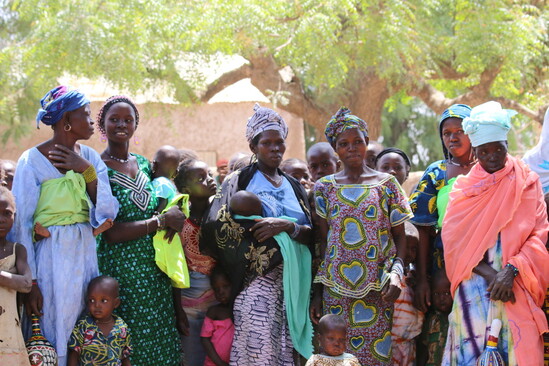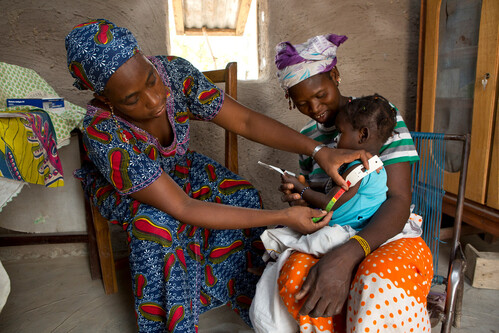Mali
- The humanitarian crisis in Mali
- Working together to support local communities
- How you can make an impact
The humanitarian crisis in Mali

In recent years, the cumulative effects of socio-political and economic crises and climate-related risks have plunged Mali into a severe humanitarian crisis. Conflicts and armed violence in the country have displaced several hundred thousand people, depriving them of access to basic healthcare, drinking water and hygiene facilities, and driving them away from the farmland and markets they need to earn a living. Climate hazards such as droughts and floods have decimated crops and livestock, further exacerbating problems of malnutrition, particularly among children and pregnant women. Diseases such as cholera, malaria and measles are spreading in a context where health and education infrastructure is being destroyed and public service workers are also being displaced.
Working together to support local communities

(Photo credit: Harandane Dicko / Red Cross)
The Canadian Red Cross has been supporting the Mali Red Cross and the country’s Ministry of Health since 2012 with a focus on improving healthcare services for local communities, with particular attention to the health of mothers, newborns and children, in a country where infant and maternal mortality rates are among the highest in the world.
Since 2021, the SAM project (Projet de santé des adolescentes au Mali) aims to improve the health of adolescent girls in the Koulikoro area. This five-year program aims to raise awareness among parents, community leaders, elders and religious leaders of ways to prevent and respond to gender-based violence. It also focuses on promoting better access to modern family planning methods to prevent unwanted pregnancies, and raising awareness of the risks associated with early marriage and the benefits of keeping teenage girls in school.
Over the past few years, the Canadian Red Cross has supported the training and provision of equipment for community health workers, enabling them to intervene in their communities in the event of malaria, diarrhea, pneumonia or malnutrition. These workers are also trained to monitor newborns and raise awareness of harmful practices against women and teenagers, including female genital mutilation and early marriage. At the same time, an emergency response capacity-building project in Africa, funded by the Government of Canada, has helped the Mali Red Cross to better mobilize its resources to respond to disasters and emergencies.
These programs also focus on the needs of displaced populations, climate risks, and the protection, gender equality, and inclusion of minorities and other vulnerable individuals and groups.
How you can make an impact
The best way to support Canadian Red Cross programming in countries like Mali is to make a donation to the International Programs Fund.Donate to the International Programs Fund
Your gift helps us implement healthcare, water and sanitation programs and contributes to making families and communities more resilient against future disasters, climate crisis or conflict situations. Your donation allows us to help prevent, prepare for, and alleviate the suffering of those impacted by disasters and crises by responding to humanitarian needs, promoting community agencies to address humanitarian crises, strengthening local capacity, and investing in preparedness. Your support will contribute to building more resilient communities around the world.Read more about how International Programs Fund donations have helped Canadian Red Cross deliver programming around the world.
